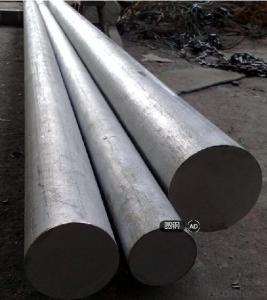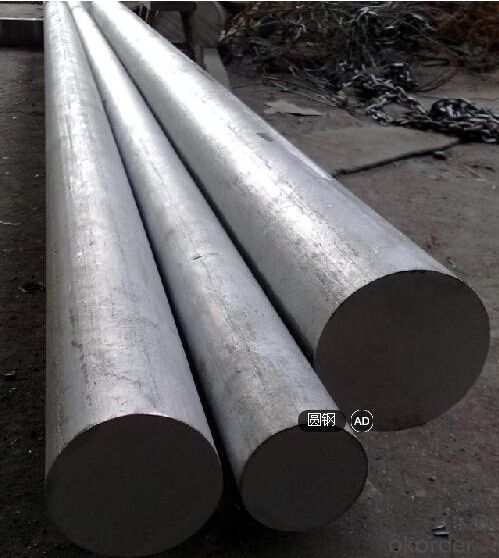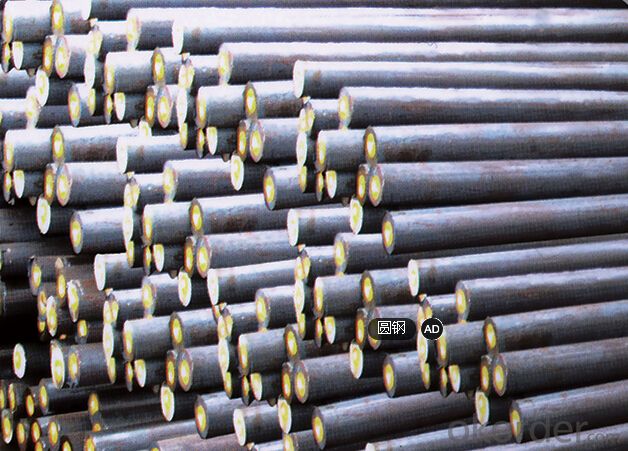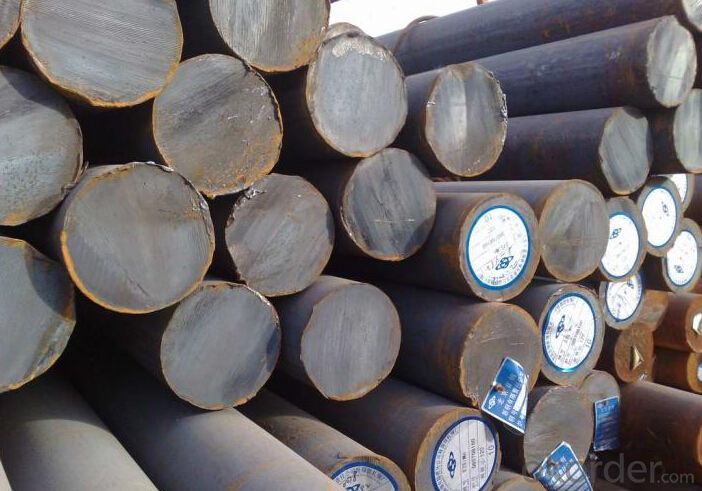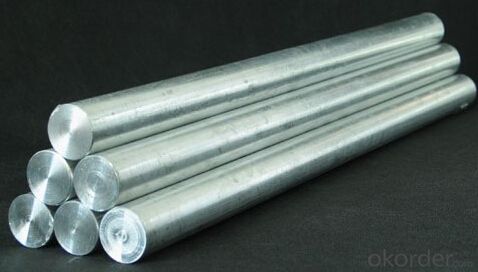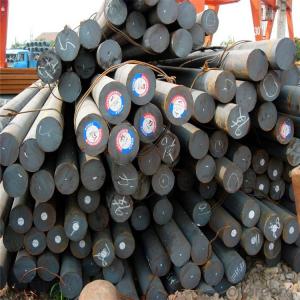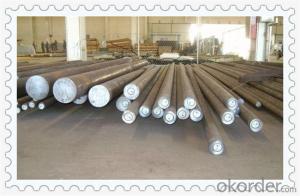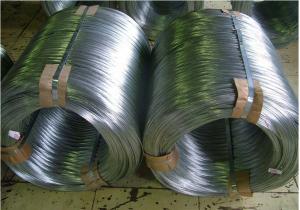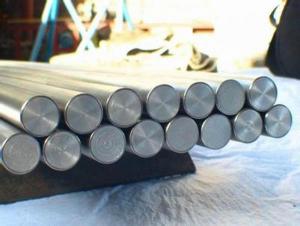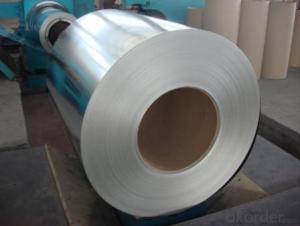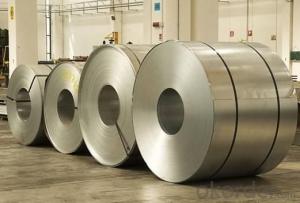Hot Dip Galvanized Steel Round Bar/Hot Dip Galvanized Bar Steel
- Loading Port:
- Shanghai
- Payment Terms:
- TT OR LC
- Min Order Qty:
- 3 m.t.
- Supply Capability:
- 100000 m.t./month
OKorder Service Pledge
OKorder Financial Service
You Might Also Like
Specification
Hot Dip Galvanized Steel Round Bar/Hot Dip Galvanized Bar Steel
Details Information of Hot Dip Galvanized Steel Round Bar/Hot Dip Galvanized Bar Steel
| Name | Hot Dip Galvanized Steel Round Bar/Hot Dip Galvanized Bar Steel |
| Shape | Round Bar/Square Bar/Flat Bar/Plate/Wire |
| Standard | GB/ASTM/SAE/AISI/DIN/JIS/EN/BS |
| Surface Treatment: | Black/Peeling/Polished/Machined |
| Delivery Condition: | Hot Rolled or Forged/Peeled or Black Surface |
| Test | SGS/UT 100% Elements Testing |
| Certificate: | ISO/Mill Certificate |
| Service: | 24 hours online service / |
| more than 20 years trading and manufacture | |
| Quality Assurance: | the third party inspection, such as SGS, BV, TUV…etc. is acceptable |
| Packaging Details: | Seaworthy Packaging or as per customer's packing instruction |
| Carbon structure round bar | Q195 Q235A Q235B 10# 20#-55# S45CB |
| Low alloy high strength round bar | Q345A/Q345C/Q345D Q345B Q345E |
| Alloy structure round bar | SAE51B20 20Cr 40Cr 40CrV 20CrMo/30CrMo/35CrMo/42CrMo 20CrMoA/30CrMoA/35CrMoA/42CrMoA/42Cr ML20CrMo/ML30CrMo/ML35CrMo/ML42CrMo B7/SCM435-440 20MnTiB 20CrMnMo 20CrMoH 42CrMoH 40MnB/40MnBH 30Mn2-40Mn2 27SiMn 50CrVA 30CrMnTi |
| Pinion steel | 20CrMnTi 20CrMnTiH 20CrMnTiHCS/20CrMnTiHLD Q20CrMnTi-1/Q20CrMnTi-2 |
| Sucker rod | 20-35CrMoA |
| Free-cutting steel | GT1215S |
| Spring steel | 60Si2MnA 65Mn |
| Ball bearing steel | GCr15 |
Chemical Composition of Hot Dip Galvanized Steel Round Bar/Hot Dip Galvanized Bar Steel
| C | Si | Mn | P | S | Cr | Ni | Cu |
| 0.17-0.24 | 0.17-0.37 | 0.35-0.65 | ≤0.035 | ≤0.035 | ≤0.25 | ≤0.25 | ≤0.25 |
| Tensile strength (σb/MPa) | Yield strength (σb/MPa) | Elongation (δ5/%) |
| ≥410(42) | ≥245(25) | ≥25 |
Company Introduction of Hot Dip Galvanized Steel Round Bar/Hot Dip Galvanized Bar Steel
CNBM International Corporation is the most import and export platform of CNBM group(China National Building Material Group Corporation) ,which is a state-owned enterprise, ranked in 270th of Fortune Global 500 in 2015.
With its advantages, CNBM International are mainly concentrate on Cement, Glass, Iron and Steel, Ceramics industries and devotes herself for supplying high quality series of refractories as well as technical consultancies and logistics solution.
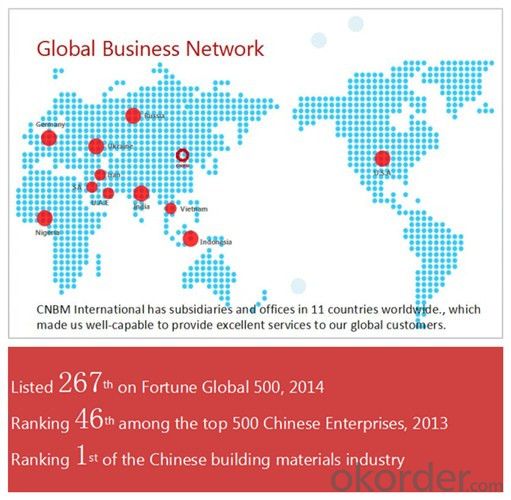
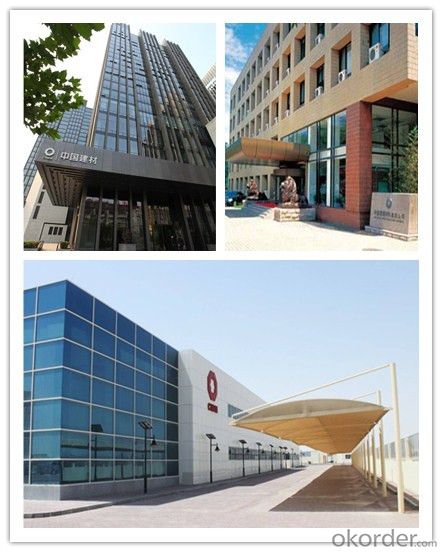
Certificates of Hot Dip Galvanized Steel Round Bar/Hot Dip Galvanized Bar Steel
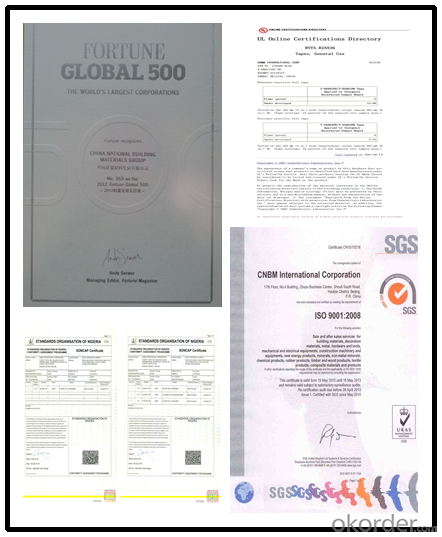
Packaging & Delivery of Hot Dip Galvanized Steel Round Bar/Hot Dip Galvanized Bar Steel
Packaging Detail | Sea worthy packing /as per customer's packing instruction |
Delivery Detail | 15 ~ 40 days after receiving the deposit |
Products show of Hot Dip Galvanized Steel Round Bar/Hot Dip Galvanized Bar Steel
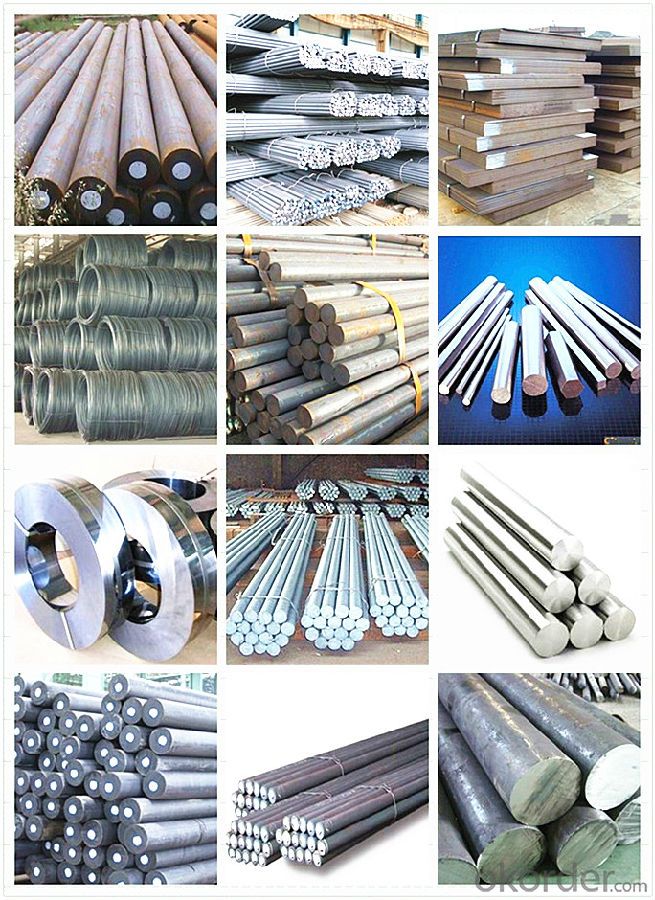
FAQ
Are you a trading company or manufacturer? | Manufacturer |
What’s the MOQ? | 3 metric ton |
What’s your delivery time? | 15-35 days after downpayment received |
Do you Accept OEM service? | Yes |
what’s your delivery terms? | FOB/CFR/CIF |
What's the Payment Terms? | 30% as deposit,70% before shipment by T/T |
Western Union acceptable for small amount. | |
L/C acceptable for large amount. | |
Scrow ,Paybal,Alipay are also ok | |
Why choose us? | Chose happens because of quality, then price, We can give you both. Additionally, we can also offer professional products inquiry, products knowledge train (for agents), smooth goods delivery, excellent customer solution proposals. |
What's your available port of Shipment? | Main Port, China |
What’s your featured services? | Our service formula: good quality+ good price+ good service=customer's trust
|
Where are your Market? | Covering more than 160 countries in the world |
- Q: What are the different case hardening grades of special steel?
- Special steel offers a variety of case hardening grades, each with its own distinct properties and uses. Some of the commonly employed grades are: 1. 8620: This grade is commonly utilized for high-stress applications like gears and shafts. Its remarkable toughness and resistance to wear make it ideal for parts requiring both durability and strength. 2. 9310: Aerospace applications often rely on this grade due to its high strength and resistance to fatigue. It is frequently employed for gears, bearings, and components demanding exceptional toughness and load-carrying capacity. 3. 4340: Known for its hardenability and high strength, this grade is suitable for parts necessitating great tensile strength and impact resistance, such as crankshafts, connecting rods, and gears. 4. 20MnCr5: This grade finds frequent use in the production of gears, camshafts, and components requiring high surface hardness and resistance to wear. It boasts excellent case-hardening properties and good core strength. 5. EN36C (also referred to as 655M13): This grade is commonly employed for axles, shafts, and crankshafts requiring high tensile strength. Its good hardenability and exceptional toughness make it suitable for heavy-duty applications. To ensure the right grade is chosen for a specific project, it is crucial to consider the application requirements, including desired hardness, strength, and wear resistance. Seeking advice from a metallurgist or materials science expert can aid in selecting the appropriate case hardening grade.
- Q: What are the different heat treatment techniques used for special steel?
- There are several heat treatment techniques used for special steel, including annealing, quenching and tempering, case hardening, and precipitation hardening. Each technique is designed to enhance specific properties of the steel, such as hardness, toughness, and durability, depending on the intended application.
- Q: What are the different surface treatment methods for special steel?
- Some of the different surface treatment methods for special steel include heat treatment, coating or plating, polishing, shot blasting, and passivation. Heat treatment involves subjecting the steel to specific temperatures and cooling processes to alter its properties. Coating or plating involves applying a layer of another material, such as zinc or chrome, to protect the steel from corrosion. Polishing is done to create a smooth and glossy surface finish. Shot blasting is a process that involves using abrasive materials to remove impurities and create a textured surface. Passivation is a chemical treatment used to remove iron contaminants and improve corrosion resistance. These methods can be utilized individually or in combination to enhance the surface characteristics of special steel.
- Q: What are the factors that affect the weldability of special steel?
- The factors that affect the weldability of special steel include the chemical composition of the steel, the presence of impurities or alloying elements, the heat treatment history, the thickness of the steel, the welding process and technique used, and the pre-weld and post-weld treatments.
- Q: What are the different methods for surface hardening special steel?
- There are several methods for surface hardening special steel, including carburizing, nitriding, induction hardening, flame hardening, and laser hardening. Carburizing involves introducing carbon into the surface of the steel through heating in a carbon-rich environment. Nitriding involves diffusing nitrogen into the surface of the steel to create a hard nitride layer. Induction hardening uses electromagnetic induction to heat the surface of the steel and then rapidly quench it to increase hardness. Flame hardening involves heating the surface of the steel with a flame and then quenching it to harden the surface. Laser hardening uses a high-intensity laser beam to heat the surface of the steel and then quench it, resulting in a hardened surface.
- Q: What are the different tempering techniques used for special steel?
- Some of the different tempering techniques used for special steel include air tempering, oil tempering, water tempering, and salt bath tempering.
- Q: What are the properties of heat-resistant steel?
- Heat-resistant steel has several important properties. First, it has a high melting point, allowing it to withstand extremely high temperatures without melting or losing its structural integrity. Additionally, it exhibits excellent strength and toughness, ensuring that it can withstand mechanical stresses even at elevated temperatures. Heat-resistant steel also possesses good oxidation resistance, preventing it from reacting with oxygen and forming destructive oxides when exposed to high temperatures. Furthermore, it has low thermal expansion, which means it maintains its shape and dimensions even under extreme thermal conditions. Overall, these properties make heat-resistant steel highly suitable for applications involving high temperatures, such as in furnaces, boilers, and aerospace components.
- Q: How is high-speed tool steel used in the production of machining tools?
- High-speed tool steel is used in the production of machining tools due to its exceptional hardness, strength, and heat resistance properties. It is commonly used to make cutting tools such as drills, end mills, taps, and inserts, which are vital for precision machining operations. The high-speed tool steel's ability to retain its hardness even at high temperatures allows these tools to withstand the intense heat generated during the machining process, resulting in improved performance and extended tool life.
- Q: How is alloy steel different from carbon steel?
- Alloy steel is different from carbon steel because it contains additional elements such as chromium, nickel, or molybdenum, which enhance its strength, hardness, and corrosion resistance. On the other hand, carbon steel mainly consists of iron and carbon, making it more malleable and less resistant to corrosion.
- Q: What are the safety considerations when working with special steel?
- When working with special steel, there are several safety considerations that need to be taken into account. Firstly, special steel can have high heat resistance, so it is important to use appropriate personal protective equipment (PPE) such as heat-resistant gloves, face shields, and fire-resistant clothing to prevent burns or other heat-related injuries. Secondly, special steel can be heavy and may require the use of lifting equipment or proper lifting techniques to prevent strains or muscle injuries. Additionally, special steel may contain elements or chemicals that could be hazardous if inhaled or ingested, so proper ventilation and respiratory protection should be used. Lastly, the use of sharp tools or equipment is often necessary when working with special steel, so it is crucial to follow safe handling practices and use proper tool guards to prevent cuts or punctures. Overall, awareness of these safety considerations and adherence to safety protocols is essential to ensure a safe working environment when dealing with special steel.
Send your message to us
Hot Dip Galvanized Steel Round Bar/Hot Dip Galvanized Bar Steel
- Loading Port:
- Shanghai
- Payment Terms:
- TT OR LC
- Min Order Qty:
- 3 m.t.
- Supply Capability:
- 100000 m.t./month
OKorder Service Pledge
OKorder Financial Service
Similar products
Hot products
Hot Searches
Related keywords
